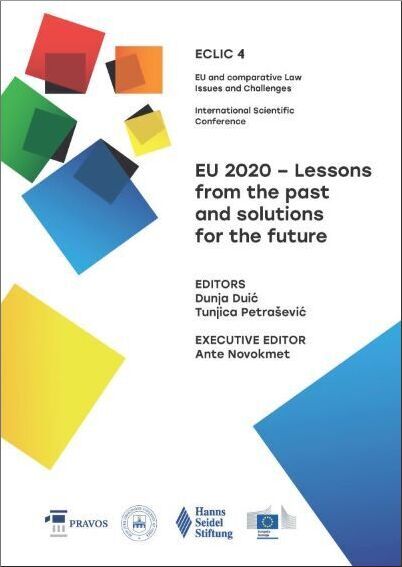CONSENSUAL JUSTICE IN CROATIAN CRIMINAL PROCEDURAL LAW
THE NEED FOR A SYSTEMATIC APPROACH
DOI:
https://doi.org/10.25234/eclic/11910Abstract
Croatian criminal procedure has undergone a number of reforms over the last twenty years, which have primarily been conditioned by harmonisation with European legal standards, but also by an effort to make criminal proceedings as efficient and economical as possible. Different forms of consensual procedures, even if they deviate from some fundamental principles of criminal procedure, may be appropriate tools for achieving faster and more efficient criminal proceedings, provided they are adequately regulated and applied. They also contribute to the humanisation of criminal justice, especially in the prosecution of less serious criminal offences. The paper analyses legislative developments and domestic research that have been conducted so far, which show that the Croatian legislator, following tendencies in comparative law, has gradually expanded the scope of the application of different consensual forms without adopting, at any time, a criminal policy platform for their introduction into Croatian criminal procedure. In addition, the legislator has not always been consistent when addressing various aspects of particular forms of consensual procedures, such as the gravity of criminal offences in relation to which a particular form of agreement is possible, the role of the court, and especially the power of the court to review the agreement of the parties, victims’ rights and the procedural role of victims, as well as procedural and defence rights. A particular problem is that there are no clear distinctions, either at the legislative level or in practice, between the specific objectives of certain forms of agreements of the parties. Therefore, this research focuses on the problem of imprecision and inconsistency in the regulation of the fundamental aspects of various forms of consensual procedures, which harms the transparency of the criminal justice system. Finally, besides detecting and critically analysing the above-mentioned deficiencies, the paper offers possible guidelines on how to adopt a systematic approach in regulating different forms of consensual procedures at the normative level and in practice, and thereby provide more consistent and transparent use of consensual justice in Croatian criminal procedure.
Downloads
Published
How to Cite
Issue
Section
License
Copyright (c) 2020 Elizabeta Ivičević Karas

This work is licensed under a Creative Commons Attribution-NonCommercial 4.0 International License.
Authors retain the copyright on the papers published in the Journal, but grant the right of first publication to the Journal. Papers accepted for publication or already published in ECLIC of the Faculty of Law in Osijek may be published by the author(s) in other publications only with proper notice of its previous publication in ECLIC.


